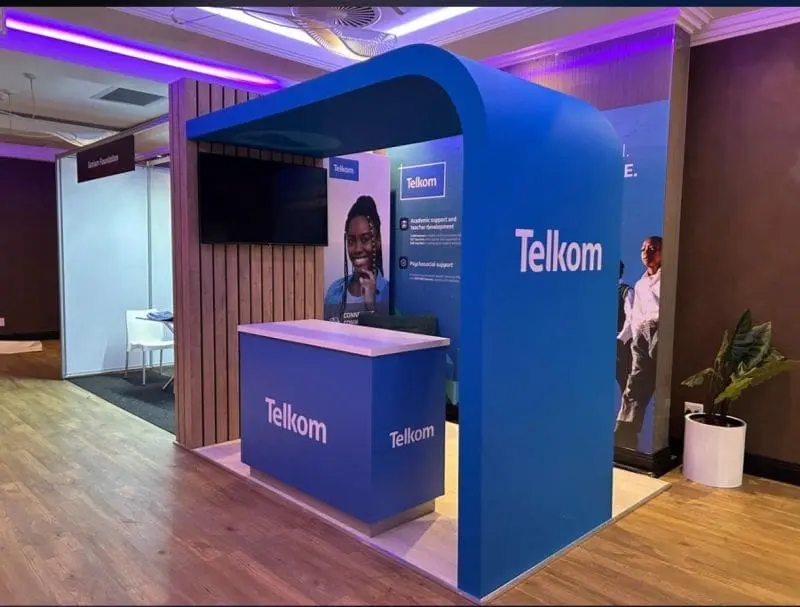Johannesburg – The parliamentary turmoil over Solly Malatsi's proposed policy change regarding B-BBEE in the ICT sector has revealed a painful truth. Stock trading in the South African mobile industry failed to achieve meaningful black economic empowerment.
Some politicians act in line with party lines – turns railways into rails against potential changes in the stock requirements of black economic empowerment, but shows that existing transactions are merely compliance exercises.
Xerra Diko, chairman of the Congressional Communications and Digital Technical Committee, is a senior member of the majority party of the National Congress of Africa, the National Union Government (GNU), and Minister Maratz belongs to the Democratic Union, the second largest party in the government coalition.
Only familiar faces and small black elites in the corporation are enriched by current empowerment transactions, but beneficiaries are tired of poverty.
However, the discussion appears to have been shaped in line with political divisions, including the GNU, rather than the reality of the desperate need for change.
The Broken Promise of B-BBEE Equity Trading
Some big heads at GNU argue that broad black economic empowerment (BBBEE) is not only a moral salvation, but also a practical growth strategy for integrating a black majority into the economy.
As official policies state, “The policy of black economic empowerment in South Africa is not a moral initiative to correct past mistakes.
“It is a practical growth strategy aimed at achieving the country's full economic potential while helping to bring the majority of black people into the economic mainstream.”
But the reality of empowerment equity trading in the mobile industry tells a very different story – one of debt traps, diluted ownership, and failed empowerment.
A view at the assembly on Tuesday. Minister Maratz was accused of proposing policy changes to empowerment regulations that could benefit new entrants such as Starlink, Amazon Kuiper, Lynk Global, AST Space Moble and China Satnet.
Minister Maratz aims to clarify the perception of equity-equivalent investment programs as a mechanism by which multinational corporations, which may be constrained by their ability to comply with stock ownership requirements, can take part in South Africa's socioeconomic development.
Are Congress members defending these failed empowerment equity models?
Vodacom's Yeboyethu: A Case Study of Failed Empowerment
Vodacom's Yeboyethu was launched in 2008 with a remarkable fanfare and aims to strengthen its 80,000 black shareholders.
Instead, it has become a financial black hole that fully shows why stock trading is failing.
These numbers tell awful stories:
The scheme was recapitalized in 2018 to acquire a 5.51% stake in Vodacom Group at a large debt value of R16.4 billion. In 2023, the company suffered a loss of R33 billion and an additional R2.1 billion loss in 2024 financial expenses, increasing from R572 million in 2023 to R772 million, with the loss on debt collections being incredible.
Meanwhile, Vodacom enjoys the benefits of a Level 1 Bee rating, ensuring you have advantageous government contracts, spectral licensing and other business opportunities.
The company declared a dividend of R14 billion in 2024, but Yeboyethu appears to be increasingly unable to pay wages as its debt increased in October 2028.
Yeboyethu's stock price is far below its net asset value (NAV).
When Yeboyethu signed a recapitalization agreement with Vodacom Group in 2018, Vodacom's stock forecast was R152.50.
However, actual stock prices have been consistently low, making it increasingly clear that Yeboyethu's debts are unsustainable.
As with the 2018 version, another collapse appears to be inevitable.
In my view, Yeboyethu's recapitalization was not a true empowerment, but a financial confinement.
Vodacom is qualified as a bee, and regular black investors take all the risks.
Cell C self: How 40% has become 1%

Cell C's storyline is even worse.
When the mobile operator was launched in 2001, its bee partner self held a 40% stake, which was explicitly described as “undilutable” under the company's license.
However, by 2005, Cellsaf's shares had already fallen to 25% to meet its debt.
Then, in 2015, the Blue Label Telecoms intervention appeared.
Today, reports show that Cellasaf's interest has dropped to just 1%.
Cellsaf's representative Zwelakhe Mankazana's 2015 words still ring true today.
“We took out the loan, donated R2 million to bid and startup costs, and R200 million in shares to operations.”
But that's exactly what happened.
Cell C's Bee Partners were systematically on the sidelines, but the company maintained its bee qualification.
This pattern of progressive dilution reveals how equity transactions can be structured to be compliant while minimizing actual meaningful black participation.
Mtn Zakhele Futhi: If an empowerment scheme requires life support

MTN's Zakhele Futhi scheme, which aims to empower black investors, is currently in a strait so bad that the company is seeking a three-year extension to prevent a complete collapse.
Numbers draw dark pictures:
MTN's stock price has fallen 23% since the scheme launched in 2016 brought about R6.7 billion in debt Zakhele Futhi can only settle full debt if MTN's stock price reaches R88 and stays around R90.
MTN CEO Ralph Mupita acknowledged the challenge and said:
“The MTN board “was a complete support for extensions.” ”
But here's the rub: Zakhele Futhi's shareholders have no real choice other than accepting an extension.
Otherwise, the scheme will end in November 2024 and will be forced to pay off the debt immediately, potentially wiping away the remaining value of shareholders.
Some analysts argue that HAT, which extends the terms of the empowerment plan set to expire on November 22, 2024, will provide better value to shareholders.
If this is approved, investors in MTN Zakhele Futhi will insist on analysts that MTN Group's stock price will recover from the major foreign currency shocks seen so far, and increase its potential if it exceeds the R90 level until it unleashes the trade.
This is far from MTN's previous bee scheme, Zakhele, and brought returns to black investors.
Under this scheme, the shares purchased at R20 in 2010 had risen to R51.70 by 2016. This is an annual growth rate of approximately 20%.
In contrast, Zakhele Futhi was a disaster for the participants.
Telkom's Elephant Consortium

Featuring politically connected figures such as former communications director Andil Nugukava and former ANC executive director Sumut Ngonama, the elephant consortium stands as one of the most controversial deals.
When I was still in the business report, when he told me, I still remember the famous quote from Ngonyama: “I did not participate in the struggle because I was poor.”
At the time, this sparked a massive debate. This was seen as being thought to encapsulate unethical and criminal self-development of ANC executives.
Reports suggest that the consortium has acquired more than R3 billion from the sale of its shares on Telkom and Vodacom, with an additional R1.4 billion dividend.
One source close to Telkom told TechCentral:
The Public Investment Corporation, run by Brian Morefe at the time, funded the transaction and supported the shares.
However, the deal has been plagued by controversy from the start, with critics questioning whether Ngcaba should be allowed to buy shares given his recent position as a communications policymaker.
Today, NGCABA is one of the largest investors in the local and African ICT industry.
Why stock trading is failing
The general threads of these failed empowerment schemes reveal fundamental flaws in the stock trading model.
Debt-financed structure – Most schemes rely on unsustainable loan arrangements that put black shareholders at all risk while the company enjoys the benefits of bee compliance. No operational control – Unlike the “container man,” who was operational in the industry and made millions from mobile payphones, bee shareholders in these schemes have no comments on the company's operations. Progressive Dilution – Companies initially adhere to significant bee stakes and structure subsequent transactions to systematically reduce meaningful black ownership over time. The incentives false – The current system incentivizes businesses to create compliance structures rather than genuine empowerment partnerships.
Better way
These failures in empowerment equity transactions do not mean that the bees themselves are flawed. In other words, we need a smarter model of empowerment that transfers wealth and opportunity.
Just as Congress discusses the proposed changes to Maratz, they should ask themselves: are they defending empowerment or a failed model that benefits persistent benefits?
The evidence suggests the latter.
The truth sets us free – but only if we stop ignoring it.
Designed in line with forced 30% stock sales to empowerment partners, South Africa's mobile equity trading could produce little “trickle-down” effect.
Those at the bottom of the food chain benefited Jillchi. It's time to try something that works as intended.
*This article was first published in sister publication techfinancials.co.za

